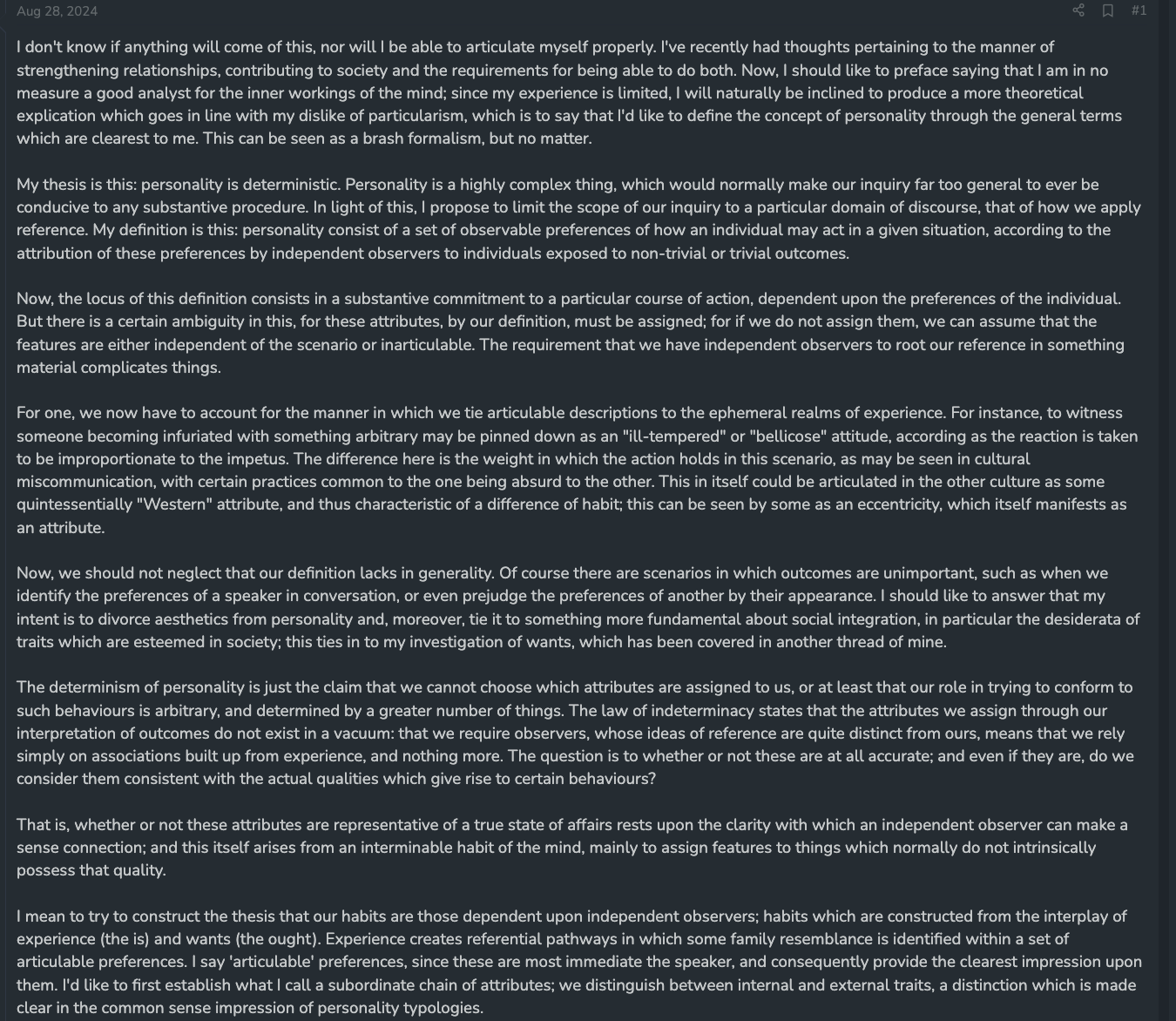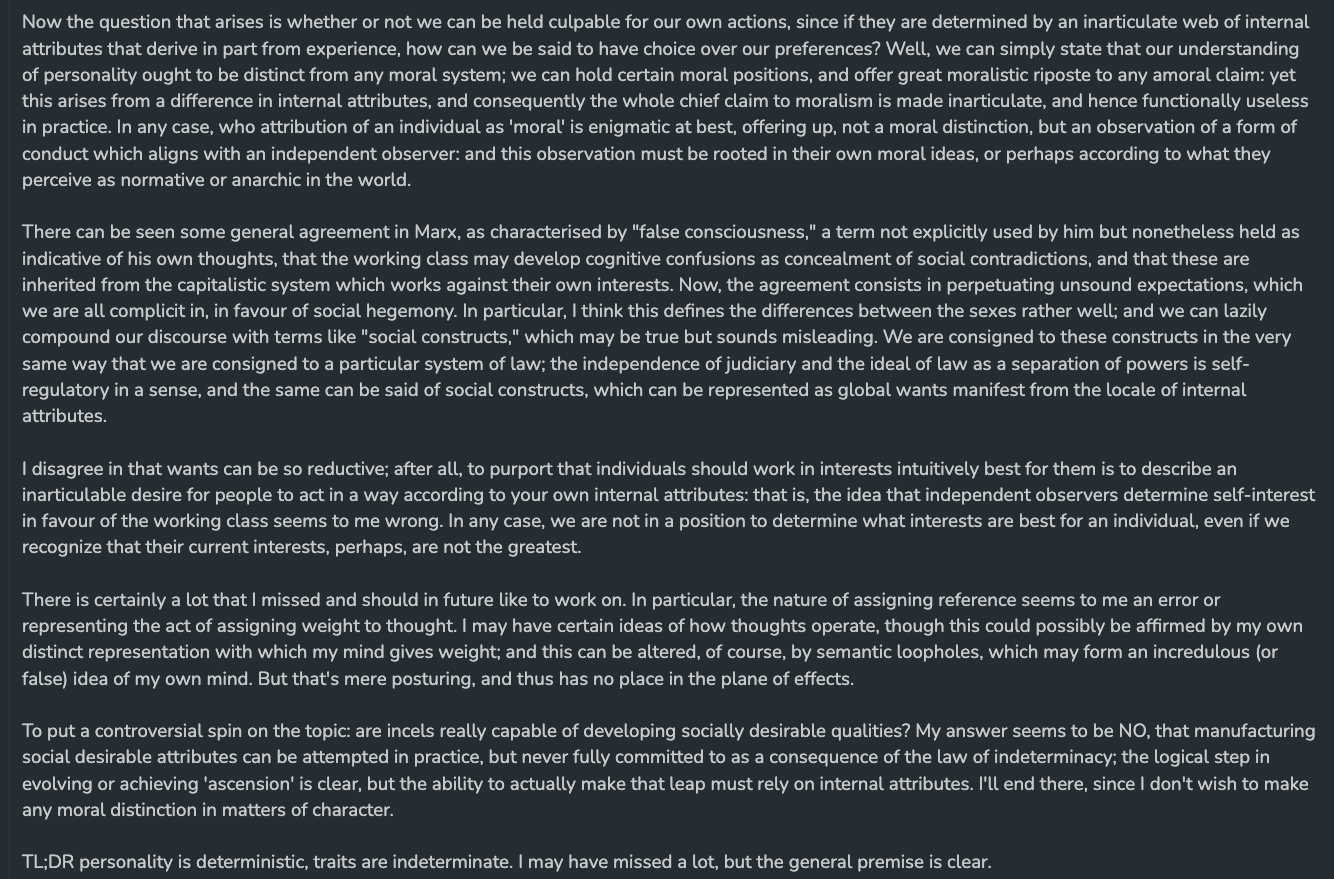MakinItHappen
Carpet bomb India
- Joined
- Sep 10, 2023
- Posts
- 7,607
- Reputation
- 11,244



Now I'm pretty intelligent, but even I couldn't decipher the points he was making, so I opted for ChatGPT to break-it-down for me and the points turned out to be quite interesting and I would like the open-minded thinkers of the forum to chime in on this. @StrangerDanger @Pakicel @perpetuallytired @AsGoodAsItGets
These are the arguments for personality being deterministic he came up with in simpler more brief words:



The arguments that particularly took my interest were:
The Role of Observers: According to this argument, personality traits are only real if they are observed by other people. If no one is there to see a certain behavior, it’s as though that trait doesn’t exist. So, we rely on others to form a sense of who we are based on what they observe.
And
Moral Implications: The person suggests that because our personality is shaped by external factors, it’s hard to say if we can truly be held responsible for our actions. If who we are is determined by things outside our control, like our experiences or other people’s perceptions, how can we be blamed for acting a certain way?



